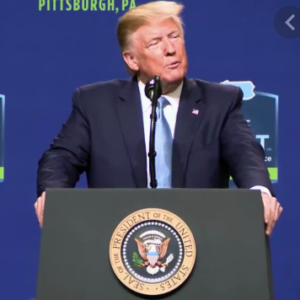Impeachment of President Trump by the House of Representatives becomes ever more likely and Senate conviction with the help of Senate Republicans is no longer completely out of the realm of fantasy. This is mostly due to Trump’s use of American policy toward Ukraine for personal gain and his rash decision to betray U.S. Kurdish allies by pulling back U.S. forces, thus green lighting a Turkish invasion of Syria.
Trump’s corruption and impulsivity have long worried congressional Republicans and even a significant part of his political base.
Whether Trump survives in office or not, it now seems that his otherwise good policies of halting military aid to Ukraine and attempting to withdraw U.S. forces from “forever wars” will be discredited by horrendous implementation.
Regarding Ukraine, Trump likely criminally violated campaign finance law by soliciting something of value from a foreign government — a publicly announced Ukrainian investigation of a political rival — for his own benefit in the 2020 election campaign. He also may have violated bribery and extortion statutes by holding up military aid to Ukraine and holding a White House meeting with its leader to motivate him to announce that investigation publicly.
However, such potentially vile and impeachable corruption should not prevent a discussion of whether the United States should be providing lethal assistance to a nation in nuclear-armed Russia’s backyard. Ukraine is so far forward that should the Ukrainian-Russian war there escalate, it would be impossible for U.S. or U.S.-led NATO forces to successfully defend that country in the face of local overwhelming Russian military superiority.
Giving lethal military aid to a country in Russia’s orbit could lead to such escalation and create at least some chance of ultimate nuclear conflict between the nuclear superpowers.
Despite talk to the contrary in foreign policy circles since the end of the Cold War, great power spheres of influence for security purposes still exist, and the United States, with its military assistance to Ukraine, is operating in Russia’s “near abroad” zone.
Because Ukraine is very important to Russia, both economically and as a traditional invasion route into Russia, the United States meddles there at its own peril. And for what strategic gain — merely to tweak Vladimir Putin?
If the United States wanted to deter future unacceptable meddling by Russia in U.S. elections, it should have launched retaliatory in-kind cyber incursions, not provided lethal aid to Ukraine. The former can be discrete raids, whereas getting involved on the ground in the Ukrainian-Russian war in Ukraine by the provision of weapons ultimately can lead to a quagmire, or even dramatic unwanted escalation, similar to Vietnam War.
Similarly, Trump’s impulsive pullback of U.S. forces in northern Syria at the behest of Turkish dictator Recep Tayyip Erdogan was headed toward the right policy of withdrawing U.S. forces from “forever” wars in the Greater Middle East, but the president’s hasty withdrawal, which didn’t allow the Pentagon sufficient planning time, needlessly endangered U.S. forces and betrayed America’s Kurdish allies in the fight against ISIS.
Trump needed to give both of the latter parties more notice. He also needed to deter a Turkish invasion while negotiating an agreement with Turkey that would have pulled Kurdish forces back from the Turkish-Syrian border and peacefully created a viable buffer zone that Turkey has created by using force against its archenemy. Furthermore, Trump still hasn’t fully withdrawn all U.S. troops from Syria, keeping hundreds there to guard Syria’s limited oil supplies.
The U.S. military’s defending of oil in the Middle East was never really necessary, not even during the days of the 1973 Arab oil embargo and subsequent price hikes, because the worldwide oil market has always been the best way to ensure oil shipments to the industrialized world at the most reasonable prices possible. The expense of having U.S. military forces in the region has always exceeded the value of U.S. oil imports from the region. Even more so now, with the advent of the domestic “fracking” boom, which has restored the United States as the number one oil producer in the world.
Thus, given the Middle East’s declining strategic importance to the United States compared to the Asian/Pacific region, Trump is laudably reassessing whether the United States needs as big a military footprint in the former region. Yet his appalling implementation of an otherwise reasonable Mideast policy, like that of his policy of reluctance toward military aid to Ukraine, is ruining, for years to come, the reputation of a wise policy of American strategic independence from likely foreign entanglements.

